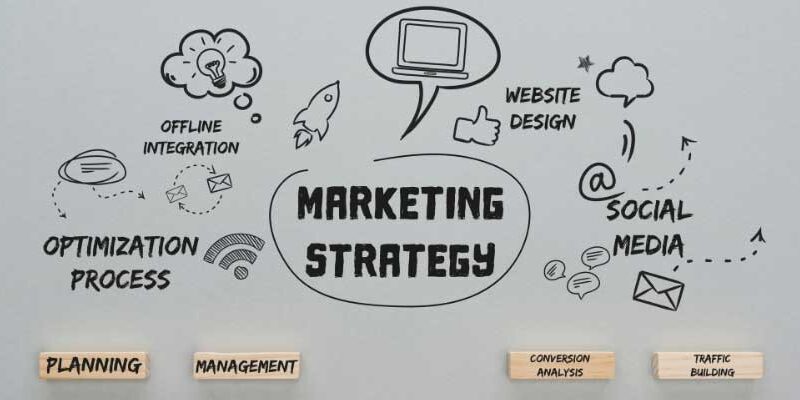Effective Strategies for Successful Digital Marketing
Effective Strategies for Successful Digital Marketing
Digital marketing is a dynamic and ever-evolving field that requires a strategic approach to achieve success in today’s digital landscape. To reach and engage your target audience effectively, consider implementing these proven strategies:
1. Define Clear Goals and KPIs (Key Performance Indicators)
Start by setting specific and measurable goals for your digital marketing campaigns. Whether it’s increasing website traffic, boosting sales, or growing your social media following, having clear objectives will guide your efforts. Align each goal with relevant KPIs to track progress and measure success.
2. Understand Your Target Audience
In-depth knowledge of your target audience is crucial. Create detailed buyer personas to understand their demographics, preferences, pain points, and online behavior. Tailor your content and messaging to resonate with your audience’s needs and interests.
3. Content Marketing
Quality content is the foundation of successful digital marketing. Create valuable, relevant, and shareable content that addresses your audience’s questions and challenges. Consistently produce blog posts, articles, videos, infographics, and other formats that provide solutions and establish your brand as an authority in your industry.
4. Search Engine Optimization (SEO)
Optimize your website and content for search engines to improve organic visibility. Conduct keyword research to identify relevant search terms, optimize on-page elements, and build high-quality backlinks. SEO helps you rank higher in search engine results pages (SERPs) and attract organic traffic.
5. Paid Advertising (Pay-Per-Click, Display Ads, Social Ads)
Complement organic efforts with paid advertising campaigns. Platforms like Google Ads and social media advertising allow you to target specific demographics and interests. Allocate budgets strategically, create compelling ad copy, and continuously optimize campaigns for better ROI.
6. Email Marketing
Email remains a powerful marketing channel. Build and segment email lists, and use personalized and engaging content to nurture leads, promote products, and maintain customer relationships. Automated email sequences can help streamline communication.
7. Social Media Marketing
Leverage social media platforms to connect with your audience, build brand awareness, and drive engagement. Choose the right platforms for your target audience and industry. Develop a consistent posting schedule and use analytics to refine your social media strategy.
8. Video Marketing
Video content is highly engaging and has become a dominant format in digital marketing. Create videos for various platforms, including YouTube, social media, and your website. Educational videos, product demonstrations, and storytelling can all be effective approaches.
9. Mobile Optimization
Ensure your website and content are mobile-friendly. With the increasing use of smartphones, a mobile-responsive design is essential to provide a seamless user experience. Google also considers mobile-friendliness in its search rankings.
10. Data Analytics and Measurement
Regularly analyze data to evaluate the performance of your digital marketing efforts. Use tools like Google Analytics to track website traffic, user behavior, and conversion rates. Adjust your strategies based on data insights to optimize results.
11. Conversion Rate Optimization (CRO)
Focus on improving the conversion rate of your website and landing pages. A/B testing, user experience (UX) optimization, and persuasive copywriting can all contribute to higher conversion rates and improved ROI.
12. Customer Relationship Management (CRM)
Implement a CRM system to manage customer data, interactions, and leads. This enables personalized communication, better lead nurturing, and improved customer retention.
13. Influencer Marketing
Collaborate with influencers in your industry or niche to expand your reach and credibility. Partnering with influencers can help you tap into their engaged audience and build brand trust.
14. Marketing Automation
Use marketing automation tools to streamline repetitive tasks, segment your audience, and deliver personalized content. Automation can enhance efficiency and scalability in your campaigns.
15. Competitor Analysis
Regularly monitor your competitors’ digital marketing strategies. Identify opportunities and areas for improvement based on their successes and failures.
16. Compliance and Privacy
Stay up-to-date with data protection regulations, such as GDPR and CCPA, to ensure that your digital marketing practices are compliant and respect user privacy.
17. Customer Feedback and Reviews
Encourage customer feedback and manage online reviews. Positive reviews can boost your reputation and credibility, while addressing negative feedback demonstrates a commitment to customer satisfaction.
18. Stay Current with Trends and Technology
Digital marketing is ever-changing. Stay informed about industry trends, emerging technologies, and algorithm updates to adapt your strategies accordingly.
19. Continuous Learning and Adaptation
Digital marketing requires a commitment to ongoing learning and adaptation. Be open to experimenting with new strategies, analyzing results, and adjusting your approach based on performance data.
Success in digital marketing involves a combination of strategic planning, data-driven decision-making, creativity, and staying attuned to the evolving digital landscape. By implementing these effective strategies, you can maximize your digital marketing efforts and achieve your business goals.




